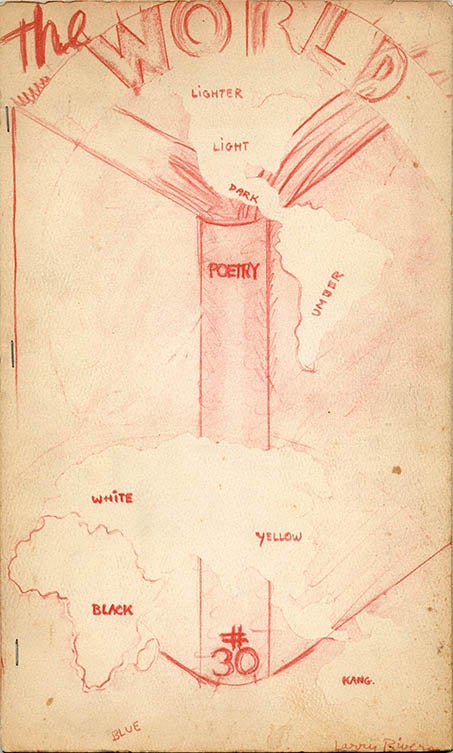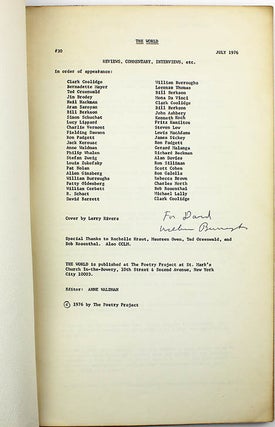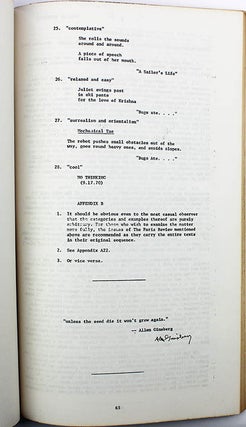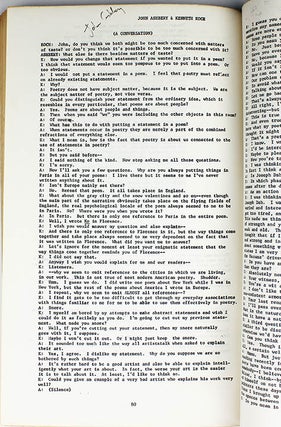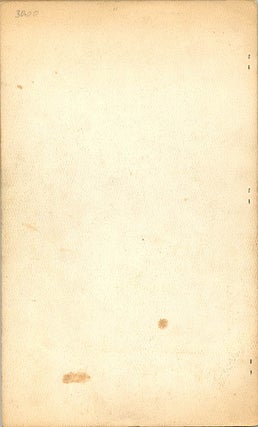94.
THE WORLD #30 (NY: The Poetry Project, July 1976).
Foolscap. Mimeographed typescript, stapled. 125pp. Ed. Anne Waldman. Front cover by Larry Rivers.
SIGNED and briefly inscribed on the first page by William Burroughs (“For David”), and, in addition, SIGNED by Allen Ginsberg and John Ashbery at their contributions.
A nice triumvirate of signatures, connecting two of the Beat Generation’s most important writers with the New York School’s most significant and influential poet.
In “Naked Corrections” (2pp., dated December 1975), Burroughs points out “some errors widely held, some of a purely or temporal order, others a matter of interpretation and emphasis, from two basic misconceptions” occurring in John Tytell’s history of the Beat Generation, “Naked Angels”. The two misconceptions relate to the supposed wealth and aristocratic lineage of the Burroughs family, both of which Burroughs debunks in some detail. In addition, his line, “Anyone who makes an impression on you is a vampire”, appears a few pages later.
Allen Ginsberg’s contribution consists solely of the traditional or Buddhist statement he sometimes quoted in conversation: “unless the seed die it won’t grow again”. John Ashbery’s contribution is a 7pp. conversation with fellow poet Kenneth Koch.
Other contributors include Clark Coolidge; Bernadette Mayer; Aram Saroyan; Bill Berkson; Lucy Lippard; Ron Padgett; Jack Kerouac (“Walking on water wasn’t built in a day”); Philip Whalen (a 17pp. interview); Louis Zukofsky (a brief quotation); Lewis MacAdams (an interview with James Dickey); and Gerard Malanga (3pp. from “The Secret Diaries”, including references to Warhol, Nico, Ed Sanders, Lou Reed and other Factory habitués).
Wrappers slightly age-toned and lightly soiled, o/w Very Good.
The first issue of Anne Waldman’s magazine appeared in January 1967, its title possibly inspired by Joseph Pulitzer’s New York World, usually known as The World, a newspaper which ceased publication in 1931.
 Back to top
Back to top

